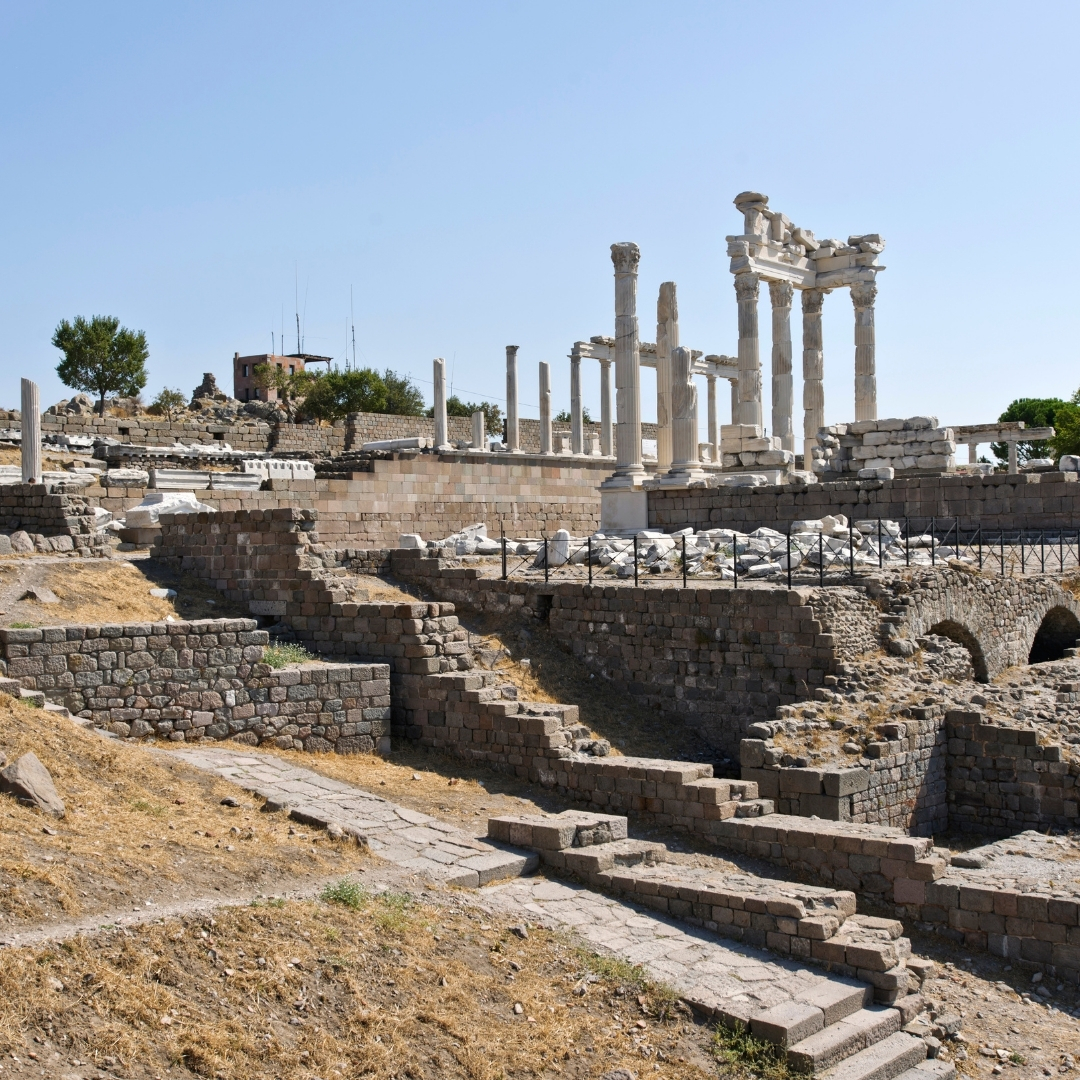
To the angel of the church in Pergamum, write:
The one who has the sharp, double-edged sword says: "I know where you live—where Satan has his throne. Yet you remain true to my name and did not deny your faith in me, even in the days of Antipas, my faithful witness, who was killed among you, where Satan dwells. Nevertheless, I have a few things against you. There are some among you who hold to the teaching of Balaam, who taught Balak to put a stumbling block before the Israelites: to eat food sacrificed to idols and to commit immoral acts. Similarly, you also have some who hold to the teaching of the Nicolaitans. Repent, therefore. If not, I will come to you soon and fight against them with the sword of my mouth.
Whoever has ears, let them hear what the Spirit says to the churches. To the one who is victorious, I will give some of the hidden manna. I will also give them a white stone with a new name written on it, known only to the one who receives it."
(Revelation 2:12-17)
The church in Pergamum (2:12-17) was situated in a city referred to as the place where Satan's throne is. This phrase likely points not to the altar of Zeus atop the acropolis, but to the city as the seat of the provincial assembly (koinon) and the center for the imperial cult. Pergamum was home to the first imperial cult temple in Anatolia, where the emperor was worshipped as divine.
In Pergamum, the Roman governor had the authority of life and death, known as the "right of the sword" (ius gladii). Jesus, however, wielded even greater authority with His sharp, double-edged sword. The church in Pergamum had remained faithful to Christ, even though they were in a hostile environment. Antipas, a faithful leader in the church, had already been martyred for his unwavering faith in Christ.
The imperial cult claimed the birth of Caesar Augustus was the beginning of life itself, as seen in inscriptions declaring Augustus' birthday as the beginning of good news for the world—echoing the claims of Christ's divinity. This pagan ideology was in direct opposition to the Christian faith, causing great tension and conflict for the believers. The Christians in Pergamum resisted the worship of Caesar, refusing to take the mark of the beast, and stood firm in their refusal to worship anyone but Christ. Despite these challenges, the church was encouraged to remain steadfast, as Christ promised the victor hidden manna and a white stone with a new name—signifying the eternal reward for those who endure in faith.






